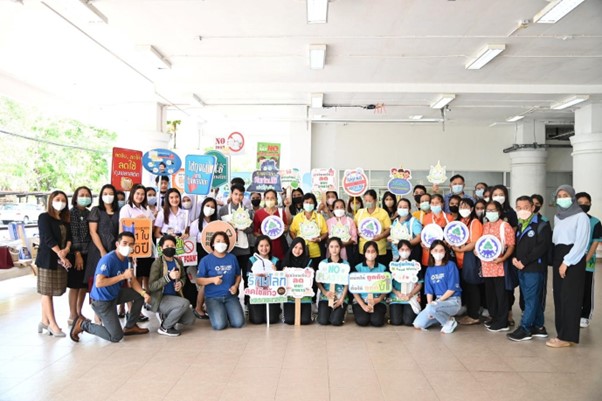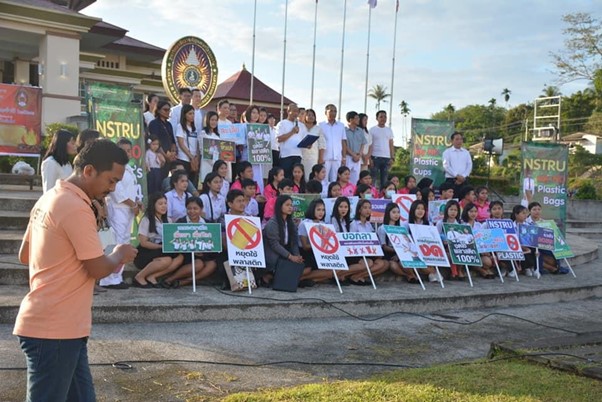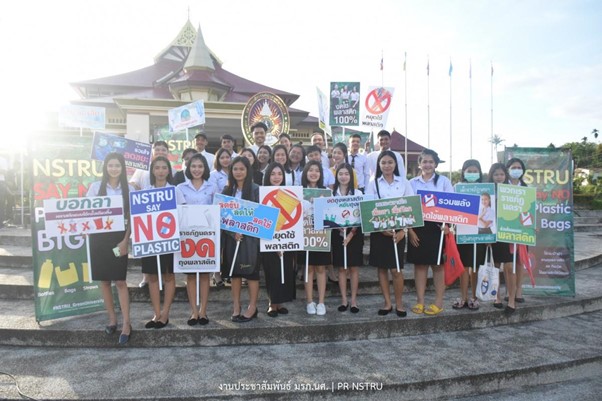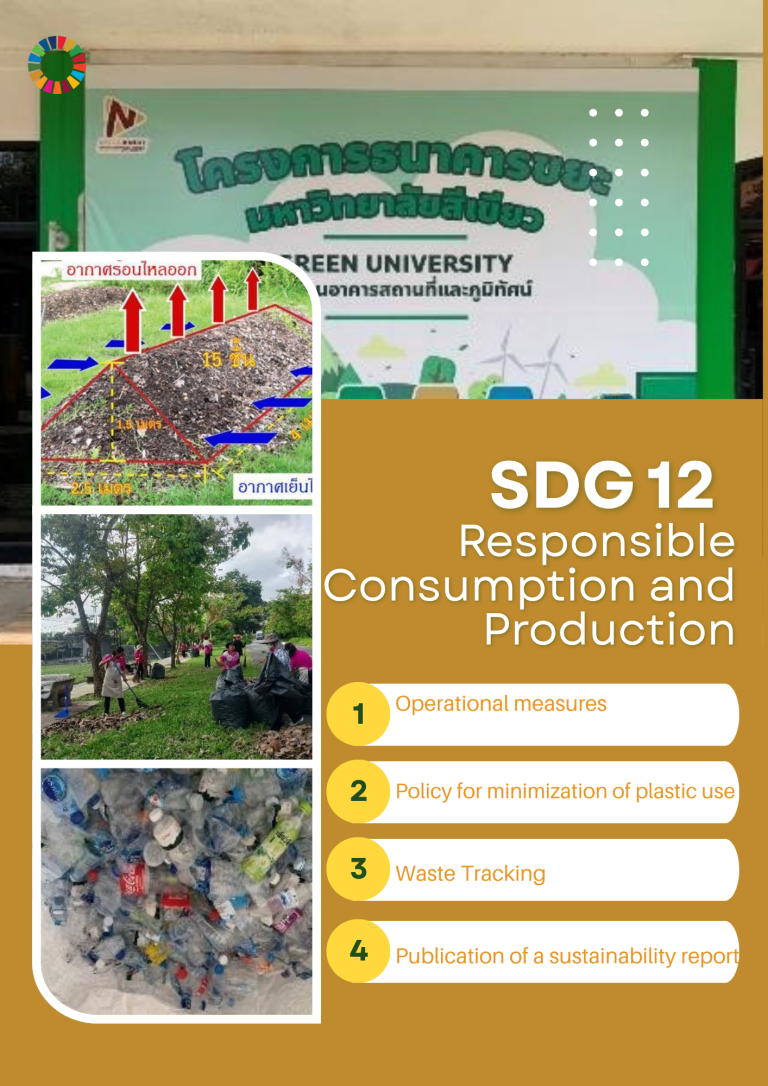- Process or practice on waste disposal – Covering hazardous materials
- Policy for minimization of plastic use
The university manages waste for recycling. There is a waste separation campaign. The paper is reused and recycled through industrial processes. Plastic is recycled through industrial processes. General waste is disposed of through city processes.
The university placed importance on disposal of toxic waste, which was caused by experiments in science laboratories. Then, we use standard collection and destruction processes. To start from waste management within the building and all laboratories by sorting, collecting, storing, and disposing to reduce the impact that may occur to operational officials, including the environment. All toxic waste that has been sorted and preserved will then be eliminated by professional companies.

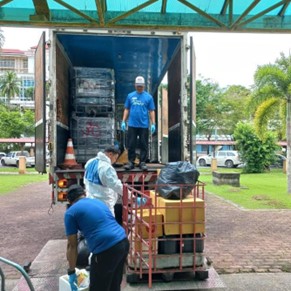


The university focuses on waste treatment and recycling as a key factor in creating a sustainable environment. The university promotes and creates shared responsibility in the organization. Additionally, the university has established a policy and budget for waste management, aimed at achieving the zero-waste goal and adhering to the waste management plan. The university has instituted a waste recycling program that facilitates students and staff in determining which materials (plastic, paper, glass, and aluminum) are suitable for recycling in a single container. It enhances convenience for operators and encourages the recycling of electronic waste, old batteries, and light bulbs. It should not be thrown into general trash because it contains high concentrations of toxic chemicals and heavy metals.
